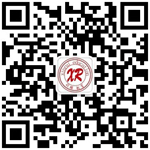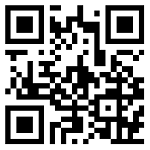提醒:点这里加小编微信(领取免费资料、获取最新资讯、解决考教师一切疑问!)
语气是动词的一种形式,表示说话人的看法和态度。英语有三种语气,即陈述语气、祈使语气和虚拟语气。陈述语气主要用于陈述句和疑问句,用于陈述事实、提出看法或问题等;祈使语气用于祈使句,表示请求、命令或警告等;虚拟语气则表示假想、推测或主观愿望,而非客观存在的事实。如:Don’t be late next time(祈使语气)。If I were you, I would not go. (虚拟语气)I wish I had a lot of money. (虚拟语气)。
在虚拟语气中,含有非真实条件句的复合句使用最为普遍,学习时要特别注意从句和主句谓语动词(因动作发生时间不同而具有)的几种不同组合形式。另外,一些特定的英语句型或表达中常需要使用虚拟语气,也应是我们在学习时特别关注的地方。
考点一:虚拟语气的三种基本类型
1.与现在事实相反:①条件从句谓语:动词过去式(be 一般用were)
②主句谓语:would/should/could/might +动词原形
例如:If I saw him now, I would be very happy.
If I were here now, we could ask him about it.
2.与过去事实相反:①条件从句谓语:had+过去分词
②主句谓语:would/should/could/might + have+过去分词
例如:If I had seen him then, I would have been very happy.
If I had been here then, we could have asked him about it.
3.与将来事实相反:(1)条件从句谓语:①动词过去式②should+动词原形③were to+动词原形
(2)主句谓语:would/should/could/might+动词原形
例如:If I were/should be/were to be you tomorrow, I shouldn’t quarrel with him.
Even if 引导的让步状语从句,其谓语形式与if 虚拟条件句相同。
Nothing could have saved the wounded man even if he had been treated without delay.
注意:
1.虚拟条件句中谓语动词变化助记口诀:碰到虚拟条件句,时态向前移一位。假设现在某情况,从句应用过去时。假设过去某情况,应用过去完成时。
2.上述主句谓语中,would表示结果,might表示可能性,could 表示能力、允许或可能性,should主要用于第一人称后。
3.条件从句的谓语动词为be时,不管其主语为单数还是复数通常都用were。
4.与将来事实相反的虚拟语气中,当条件从句谓语动词使用should +动词原形时(表示可能性极小,常译为万一),主句谓语动词除了would/should/could/might +动词原形这样的虚拟语气外,也可用陈述语气或祈使语气
例如:If I should see him, I will tell him.
If it should rain tomorrow, don’t except me.
考点二:(时间)混合虚拟语气
条件从句的动作和主句的动作发生的时间不一致(如一个是过去发生的,一个是现在发生的)。这时主从句动词的形式要根据时间来调整,使用各自的谓语动词。
例如: Tom would be alive today if the doctor had come sooner last night.
If he had followed th doctor’s advice then, he would be quite all right now.
考点三: 倒装的虚拟条件句(were, had, should)
If 条件句中有were, had(助动词)和should时,可使用倒装结构,但if必须省略。
If I had seen him then, I would have been very happy. =Had I see him then, I would have been very happy.
If I should have time, I would go with you. =should I have time, I would go with you.
若条件从句为否定句,否定词not应置于主语之后,而不能与were, should, had 等缩成weren’t, shouldn’t, hadn’t而置于句首。
If I were not so busy, I would go with you. =Were I not so busy, I would go with you.
考点四:含蓄条件句的虚拟语气(without,with,but,for,or,otherwise或上下文)
用without(=but for),or (else),otherwise暗示if从句
例如:but for his help, we wouldn’t have made such great progress.
He must have missed the train, or he would have arrived here then.
当上下文或上下句中的语境暗示的时候,省略条件句,避免重复。
It was not a matter of money. Even a very poor man would have done the same, I think.
They helped me a lot. I don’t know what I would have done without their help.
考点五:虚拟条件句两个常用的固定句式(if it weren’t for…和if it hadn’t been for…)
If it weren’t for…和if it hadn’t been for…是两个很正常的虚拟语气句型,其意为若不是(有);要不是有。
其倒装形式是:Were it not for…和Had it not been for…
此句型可与but for, without “要不是’(后加名词,句子谓语动词常与虚拟语气)等替换。
提醒:点这里加小编微信(领取免费资料、获取最新资讯、解决考教师一切疑问!)









